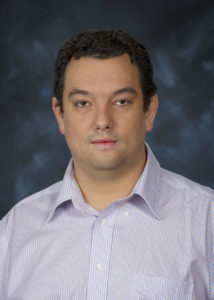Whirlpool is looking at advanced controls technologies including machine learning, neural networks, and model predictive controllers that will more efficiently cool complex refrigerator systems. Students on this team will evaluate current capabilities on the Python framework that will be fast prototyped and applied in a simulation environment with a conceptual plant model.
Abstract:
Whirlpool, the world’s leading major home appliance company, has been an innovator for over 100 years, beginning with a patent for an electric-driven wringer washer. Current refrigerator advancements are taking the appliance from a two compartment device (refrigerator and freezer) to one with multiple compartment systems that allow the user to quickly access snacks or even convert compartments from refrigerator to freezer and back again. These compartments increase the energy consumption of the system and require significant increases in expensive insulation to manage temperature control.
In order to drive disruptive innovation on performance algorithms, Whirlpool is looking at methods and ways to easily design, prototype, and test advanced controls technologies including machine learning, neural networks, and model predictive controllers that will more efficiently cool these complex systems. Students on this team will evaluate current advanced control capabilities on the Python framework that will be fast prototyped and applied in a simulation environment with a conceptual plant model.
More Information
Python programming (2 – 3 students)
Specific Skills: General programming skills in Python. Completion of EECS 281. Interest and motivation in controls and developing ML skills are a benefit.
Likely Majors: CS (ALL), Any
Controls (1 – 2 students)
Specific Skills: Advanced controls. Open source Python framework experience or motivation to learn
Likely Majors: EE (ALL), CE (ALL), ROB (MS/MSE), MECHENG (ALL), Any skills/experience
Thermal / Thermodynamic Modeling (1 – 2 students)
Specific Skills: Advanced thermals/thermodynamic modeling, with emphasis on heat transfer and cooling systems. Previous experience on numerical modeling of thermal systems is an advantage.
Likely Majors: ChE (MS/MSE), MSE (MS/MSE), MECHENG (MS/MSE)
Sponsor Mentors

Fernando A. Ribas Junior
Fernando is a Principal Engineer & Senior Manager in model based design at Whirlpool. He is a Mechanical engineer with 16+ yrs of industry experience, and an MsC in Thermal Sciences with intense work experience on modeling and simulation of the most diverse systems. More than 20 papers published in the area of modeling and simulation. Leading a global organization of 25+ people (US, Europe, India) in the area of Model Based Design. (Modeling & Simulation & Controls) Fernando will be supporting the team in the area of modeling and simulation.

Jean Rusczak
Jean is a lead engineer in model based design at Whirlpool. He is an Electrical engineer, with an MsC in electrical engineering, specialized in Control Systems, with 10+ year of industry experience. He has actively worked with Classical Control as well as with Advanced Controls and Sensing Techniques, such as Neural Networks, Machine Learning, and new sensors. Jean will be supporting the team in the area of Control System Modeling and will be the focal point for the day-to-day needs for the team.
Faculty Mentor

Robert Middleton
Assistant Research Scientist, Mechanical Engineering
Rob’s research interests include combustion, focusing primarily on automotive engines, simulations of spark ignited and advanced auto ignition combustion modes using 1D models and 3D CFD including large scale parallel simulations, and the impact of fuel properties and kinetics on engine efficiency and emissions. Rob is an experienced MDP mentor.
Course Substitutions: Honors, ChE Elective, CE MDE, EE MDE, ISD AUTO 503, MECHENG 490, MECHENG 590
Internship/Summer Opportunity: Students will be guaranteed an interview for a 2021 internship. The interviews will take place in March of 2021.
Citizenship Requirements: This project is open to all students on campus.
IP/NDA: The project will be open source and all students must sign an open source agreement.
